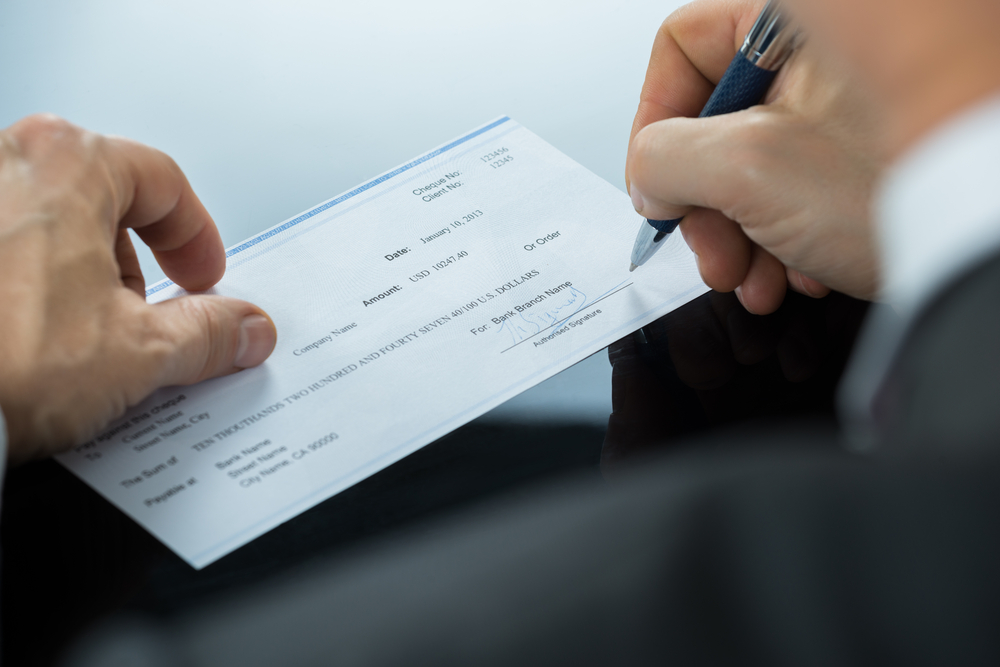Writing Checks: Good for the Brain
Writing checks may seem antiquated. However, there are many advantages, including having a paper trail for your payment and the "buffer" time from sending to depositing.
Here's another advantage that comes from making sure people are comfortable using checks that you may not have considered:
Checks can actually make you .... smarter.

Well, it's specifically the act of writing by hand, as found in a study featured by the Michigan Psychological Association:
Professor Audrey van der Meer, the lead author of the study, and her colleagues at NTNU [Norwegian University of Science and Technology] have investigated this idea several times going back to 2017. In 2017, Van der Meer and others examined the brain activity of 20 students. Recently, they have published a new study in which they examined brain activity in 12 young adults and 12 children. This is the first time that children have participated in such a study. This and a previous research project were conducted using an EEG to track and record brain wave activity. Since the brain produces electrical impulses when it is active, the 250 sensors on each person’s head during this study were able to pick up the electrical activity that takes place in the brain.
The results of this latest study showed that the brain in both young adults and children is much more active when writing by hand than when typing on a keyboard.
"The use of pen and paper gives the brain more ‘hooks’ to hang your memories on,” Van der Meer said. “Writing by hand creates much more activity in the sensorimotor parts of the brain. A lot of senses are activated by pressing the pen on paper, seeing the letters you write and hearing the sound you make while writing. These sense experiences create contact between different parts of the brain and open the brain up for learning. We both learn better and remember better," she added.
The History of Signatures
One key part of checks are the signatures or endorsements (or indorsements as some may call it). Signatures validate documents, or as defined by the Oxford Dictionary:
A person's name written in a distinctive way as a form of identification in authorizing a check or document or concluding a letter.
According to Legalesign.com, the history of signatures can be traced as far back as 3000 BC. However, the first time signatures obtained legal status was in 1677 when the English Parliament passed the Statute of Fraud Act. Since then, signatures have been the de facto method to validate documents and payments.
The key for signatures is writing them on a consistent basis to ensure that there are few deviations -- important for fraud detection.
So, writing checks has benefits -- particularly when it's time to sign those really important documents. Given their importance, it makes sense to keep training your brain to make sure your signature is consistent!